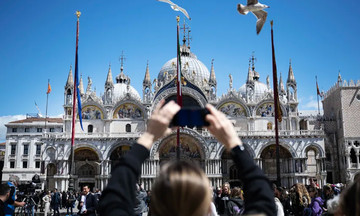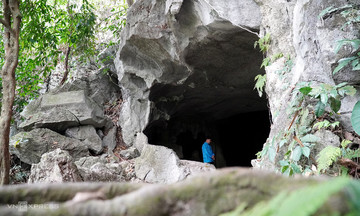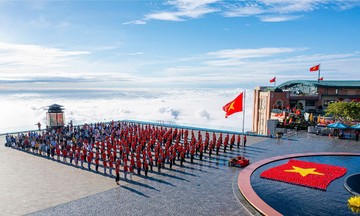Many decommissioned ships are being safely repurposed as underwater havens for marine life. After thorough cleaning and removal of hazardous materials, these vessels become artificial reefs, attracting diverse fish and coral species. These sites also draw tourists and marine biologists, fostering biodiversity, creating new livelihoods for coastal communities, and raising awareness about ocean conservation.
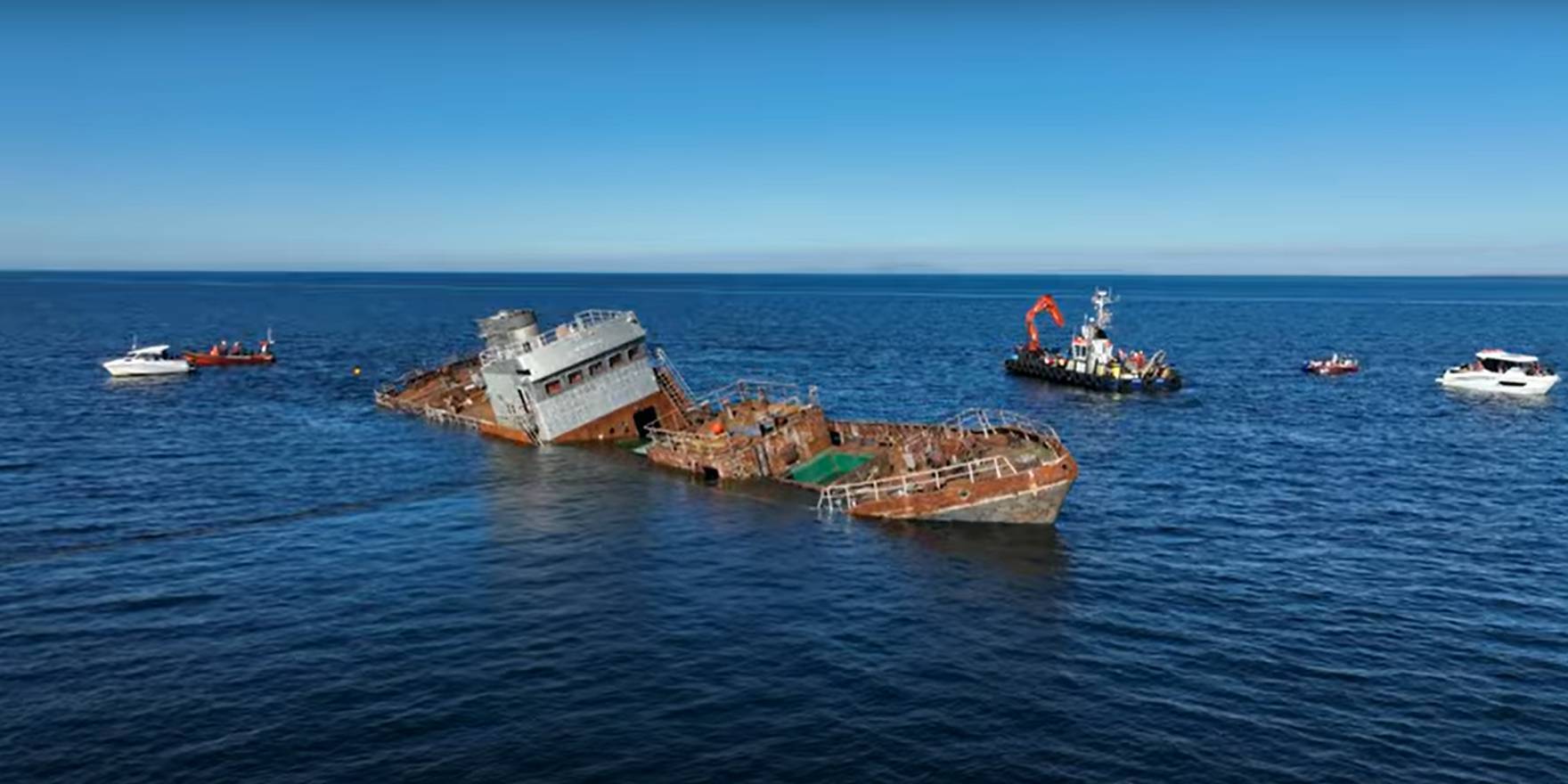 |
The MV Shingle before being sunk. Photo: Western People |
The MV Shingle before being sunk. Photo: Western People
The MV Shingle in Ireland
The 60-meter MV Shingle, a former cigarette smuggling vessel seized by authorities, became Ireland's first artificial reef in 2024. After accruing around 2 million euros in docking, maintenance, and hazardous material removal costs, the revenue service handed the ship over to the Killala Bay Ships 2 Reef group.
Sunk off the coast of County Mayo at a depth of about 29 meters, the project is hailed as an "underwater oasis in the Atlantic." Now teeming with marine life, the MV Shingle attracts divers and scientists, contributing to Mayo's ecotourism.
The three Inchcape vessels in the UAE
In 2025, the UAE government sank three decommissioned ships – Inchcape 1, Inchcape 2, and Inchcape 10, ranging from 50 to 70 meters in length – off its eastern coast. These former cargo ships were meticulously cleaned before being scuttled.
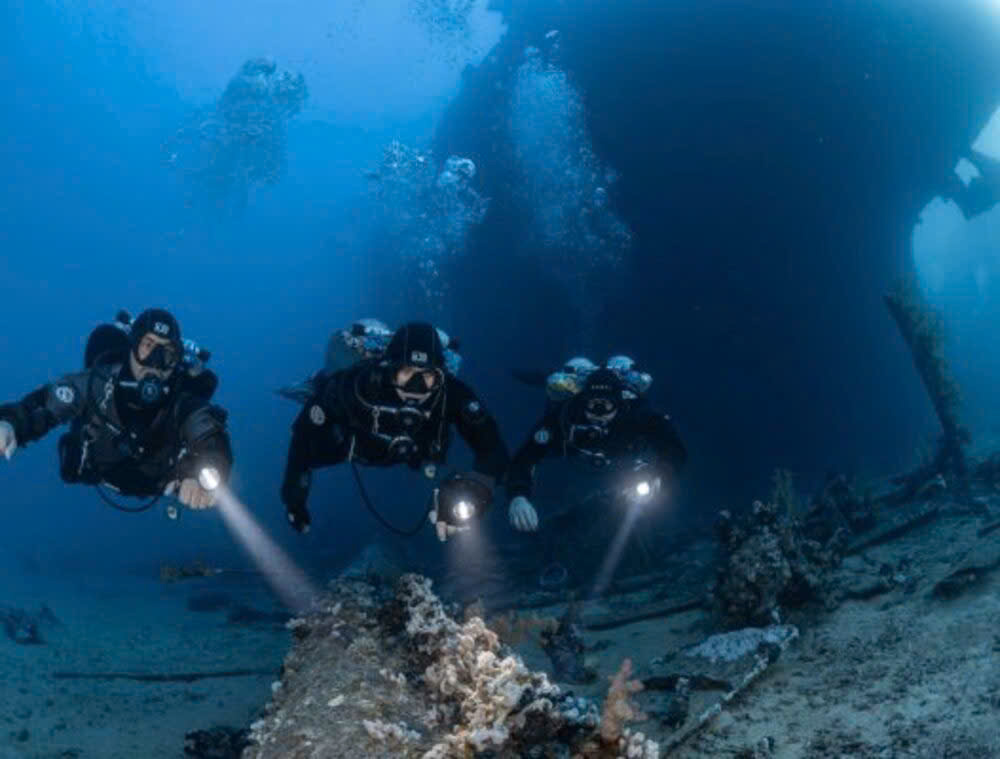 |
Divers exploring the Inchcape 10. Photo: Nemo Diving Center |
Divers exploring the Inchcape 10. Photo: Nemo Diving Center
Artificial reefs quickly formed, attracting fish, sea turtles, sharks, and various coral species. These new dive sites have become popular attractions for tourists and local divers.
Diver Saleh Al-Dhahouri noted the previously limited diving opportunities in the area. Now, the wrecks are integral to weekly diving itineraries. Mintaha Al Shehhi, a shark specialist diver, observed that the presence of sharks and turtles at Inchcape 2 indicates a healthier, more balanced marine environment.
The RMS Cyclops in the US
Okaloosa County, Florida, has initiated a project to sink several large ships to enhance dive tourism. In 2023, the 32-meter RMS Cyclops, a former oil and gas vessel, was safely prepared and sunk 22 meters deep off the Panhandle coast.
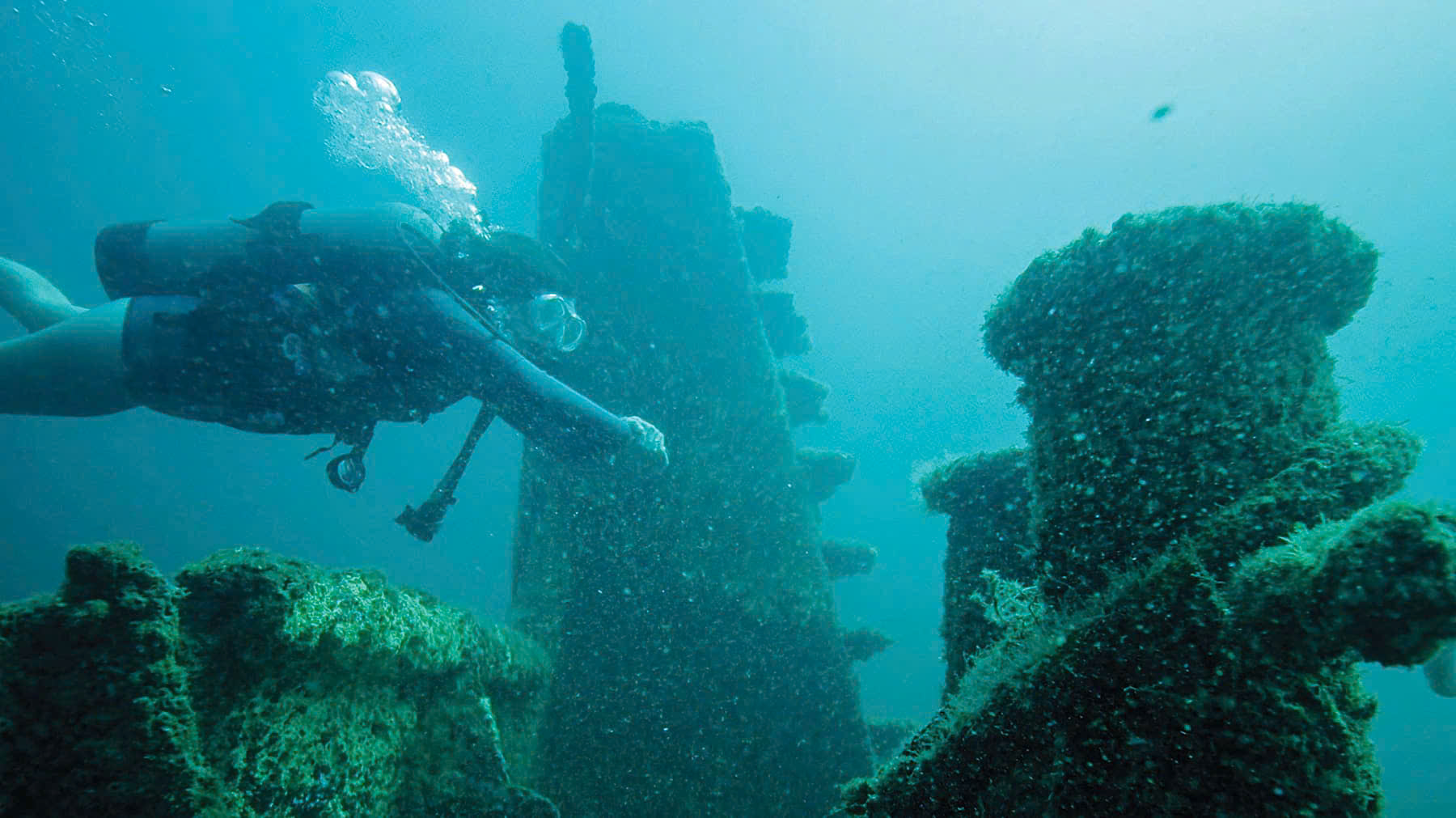 |
Divers exploring the RMS Cyclops in Florida, US. Photo: Bay Life |
Divers exploring the RMS Cyclops in Florida, US. Photo: Bay Life
Now home to a thriving marine ecosystem, the RMS Cyclops is a popular dive site. This project not only promotes biodiversity but also contributes to local economic growth.
According to the Divers Alert Network (DAN), hundreds of old ships are intentionally sunk each year in various countries to create artificial reefs. The US leads with hundreds of wreck diving sites, followed by Australia, Japan, and several Middle Eastern nations.
This model offers dual benefits: conserving and restoring marine ecosystems while creating unique tourism products. In Florida, the diving industry contributes over 4 billion USD annually to the local economy. In the UAE, wreck diving sites have increased international tourism to coastal areas by 30% to 40% within a few years of implementation.
Environmental experts assess that if managed correctly and placed appropriately, artificial reefs from shipwrecks can last for decades, becoming underwater "green lungs" and vital resources for coastal communities. This trend is expected to continue as more countries pursue sustainable marine tourism coupled with environmental conservation.
Tuan Anh (The Washington Post, Support the Guardian)






